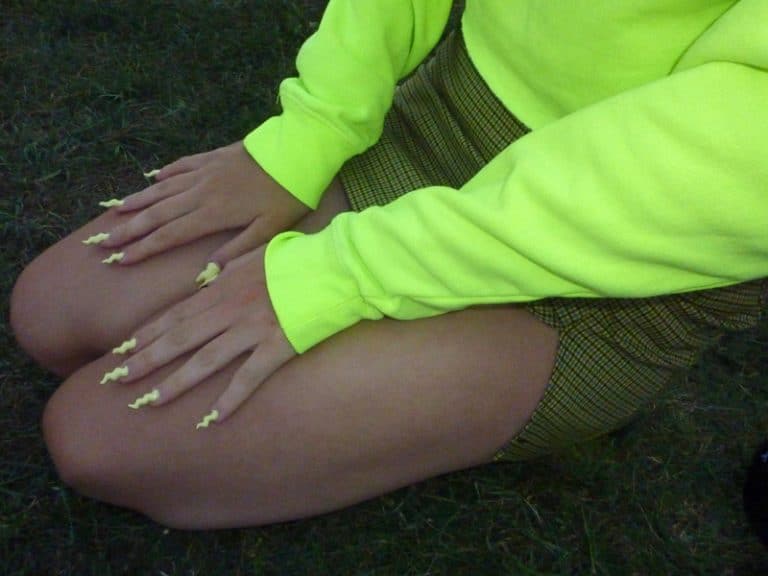Here’s why your #SecondHandSeptember is not enough
Hands up if you have a ‘clothes chair’? Does anyone have a floordrobe? Or, better yet, a Monica Geller-style messy (but hidden) closet? What seems to always be the case is that when you feel like you don’t have much to wear, clothes seem to magically pile up from somewhere, whether that’s your laundry or relics of your Saturday night.
But, in fact, there’s no magic. In 2018, British women spent around £29.4 billion on clothing, while in 2016, as reported by Statistica, consumers spent £68.1 billion on clothing and footwear. Clearly, we the British, have a problem.
Yet, it’s not as if our sartorial actions do not have consequences, with the fashion industry being of the largest polluters of the planet—perhaps not the second bigger polluter as most claim, but the overall notion still stands. Buying into fast fashion at the swipe up of an Instagram Story is a growing source of waste.
It’s no surprise that Oxfam has launched its initiative #SecondHandSeptember, encouraging everyone to thrift and buy second-hand clothing during the month and hopefully beyond. Oxfam has also partnered with London Fashion Week, where designers like Vivienne Westwood and Henry Holland, singer Paloma Faith, and actress Rachel Weisz have donated some of their pieces to Oxfam to raise more money. London Fashion Week and Oxfam are also encouraging fashion week attendees to show up in second-hand pieces. Fee Gilfeather, Oxfam’s sustainable fashion expert, says the intention behind #SecondHandSeptember is grasping that “It’s in everyone’s power to change things.”
“By signing up to #SecondHandSeptember and pledging to say no to new clothing for one month, you can help protect the environment, and if you buy second-hand in Oxfam you’ll be helping the poorest people around the world escape poverty.”
Although shopping less can count as a form of activism, as you are not giving in to every trend catered to you via an algorithm and are being somewhat kinder to the planet, it’s also important to look at why and how those who are partaking in #SecondHandSeptember are able to do so.
For art director at Studio Palmetto, Maria Maleh, it’s about shopping sincerely. “I am doing #SecondHandSeptember with the intentions to think twice before I consume things.” In Maleh’s case, she says it’s about asking questions, such as “Do I really need this? Do I already have something similar at home? Can I maybe borrow it from a friend? If not, can I buy it second hand or from someone who does not want the item anymore?” For freelance features editor, Hester Grainger, it’s about understanding what’s in her wardrobe before buying something that is preloved. “Rather than rushing out and buying something new as I had an event to go to, I checked my wardrobe first and found some gems. This month it’s also made me more creative with second-hand shopping. I’ve picked up a fab bomber jacket, an awesome dress from C&A (I went retro!) and also a white shirt from BHS!”
Yet budding writer Albena Kadrija, whose based in Switzerland, “where we are really into the save the planet modus”, rejects the idea of thrift shopping based on two reasons. The first being quite simple: “we already have a full wardrobe.” “My #SecondHandSeptember is more about reusing clothes I already have as I don’t want to add more unworn clothes to my pile. I also want to soon improve my DIY skills as a way to help the planet, with first of all using what we have.”
Kadrija’s second reason is that “thrift shopping has become more of a status symbol. Buying them just to show on Instagram that you’ve bought second hand and to never wear them again is just as bad [as shopping fast fashion].”
On the one hand, a no-shop September may be what is necessary for both our wardrobe and mother nature, but in order to be sustainable and simultaneously donate to charity (as that is what Oxfam’s initiative is based on), we must try to rectify a phenomenon already taking place around the world. And, once again, the only way to do so in a capitalistic society is to use our biggest political power: our wallets.
As much as #SecondHandSeptember is about reusing and recycling clothes, Maleh points out that “It’s also about minimising my own personal consumption,” adding that, “I also like to give. I use apps and facebook groups where I give away some unwanted items for free.” Food-waste reduction apps like Olio or Too Good To Go, for example, are normalising the concept of sharing food instead of throwing it away.
But what about influencer culture, when it comes to fast fashion and being sent free clothing and beauty products? We’ve seen (and sometimes been lured by) the amount of gifted pieces that fashion and beauty influencers are sent—which is where Maleh finds the green line to be tricky. “I do not find it too difficult to not purchase things, especially clothes, but what I struggle with is the unwanted gifting that brands keep sending to my flat. I am at the moment trying to figure out how to deal with that without sounding ungrateful.”
You may be partaking in #SecondHandSeptember (or even a no-shop-September) but the central thread of repurposing clothes is the intention to be greener through the small things. September is a month of new beginnings; schools around the world start and new uniforms are being bought, including P.E kits and extra rugby trainers. More so, going forward, shouldn’t the conversation around sustainability in fashion include parents, mothers who are shopping for families, and millennials finding their latest vintage buy?
Yes, baby steps towards a sustainable wardrobe are still steps, but I’d like to see large factories around the world and unethical retail conglomerates do their version of #SecondHandSeptember. Maybe we can have an #EqualOpportunitiesOctober and an #OverPayOctober, where factory workers are paid fairly but don’t have to produce excess textile waste? Just a thought.





